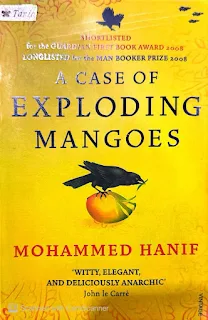Bramayugam (Era of Madness, Malayalam; 2024)
Story, Direction: Rahul Sadasivan

Power corrupts, and absolute power corrupts absolutely. That is the takeaway. No matter who holds the helm of control or the intoxicating concoction of power, life can never be a level playing field. Invariably, one tries to supersede another regarding idea, physical prowess, endowments, or wealth. For every robust individual, there is always another who is slightly better, faster, or stronger. And the eternal duel to be the supreme leader of the tribe goes on.
Set in 16th-century India, when the Portuguese were out hunting for Indian slaves to spur their intercontinental slave trade, two men escaped from their captive ship and hid themselves in the jungle. One of them falls to the lure of the jungle temptress spirit, Yakshi, and is killed by her. The other, Thevan, makes it to an abandoned mansion in the middle of the jungle. Hungry, he helps himself to some coconut, but he is admonished by the house's cook, who brings him to meet the boss of the manor. The boss appears like a reasonable chap and treats him as a house guest, much to the chagrin of the cook. Upon discovering that Thevan is a palace singer, the Lord of the Manor requests him to sing.
Thevan, a person of the lowest castes, Pannar, is grateful to be given due recognition for his talent. Soon, things change. Increasingly, the homeowner goes into mood swings. When Thevan says he wants to leave, he gets a 'NO!'
Things turn eerie with strange sounds, and the cook starts acting weird. The story explores the various superstitions and beliefs in the supernatural, spirits, and demons in Kerala. This film is shot in black and white but does not fall short of suspense. The filmmakers do not depend on gore or visual extravaganzas to drive home their point but via judicious use of sounds, visuals, and good acting.
The Lord of the Manor is not who he is supposed to be. Demon (shattan) has taken his appearance. As the cook and Thevan defeat the Demon, the Demon tries to jump ship. The body that it goes into turns evil. That, in essence, is the message behind the movie. The Demon is equated to power. Power is evil and destroys indiscriminately.
First, the primordial people of the land tried to make sense of the world they were in. Trying to give meaning to tremendous forces of nature, they named Gods. Work was distributed based on people's skills and aptitudes to ensure the continuity of life on the planet. Somewhere along the way, people started thinking that their own jobs were more important. They tried to impose restrictions to keep the knowledge of the job to their own kind. A divisional hierarchy soon followed.
People were always suspicious of other communities; they allayed their cognitive dissonance by convincing themselves that the other party was wrong or deviant. It made sense afterwards. To spread their beliefs, they had to conquer over the other.
The conquerors started making divisions amongst their subjects to make 'divide-and-rule' the way to go. They came up with half-baked studies, supported by supposed scholars, to drive home the point of who the real boss is. Obscure occidental studies supported the theory that the Orientals were culturally backwards when, in reality, the reverse was true. Aryan Migration Theory was coined to justify the occupation of Europeans over India.
It did not matter who held the ruling position. The people at the lowest rung of the food chain will always be pushed. As the Tamil proverb goes, 'Whether Rama rules or Ravana does, our life remains in the doldrums.'























.jpeg)

